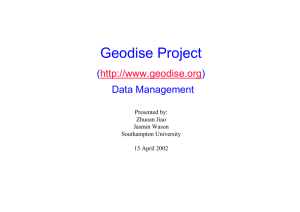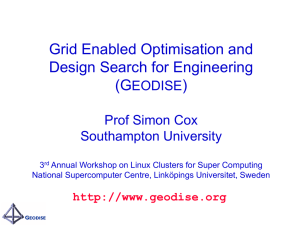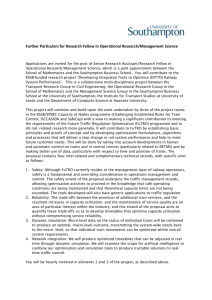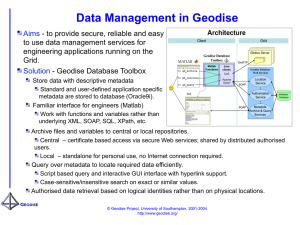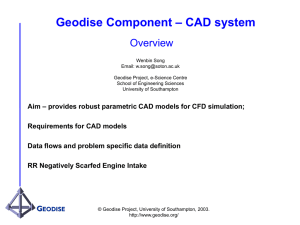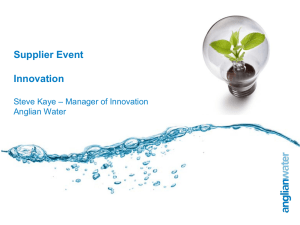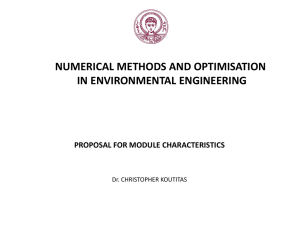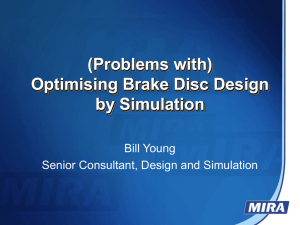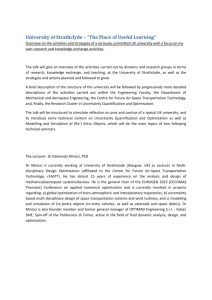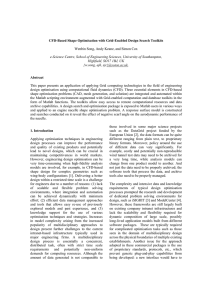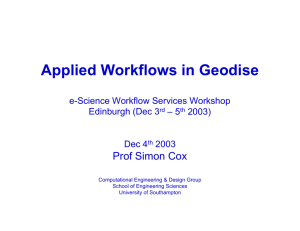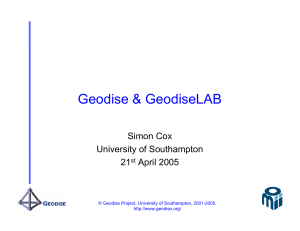defined by engineers and transparently converted using an XML toolkit developed in
advertisement
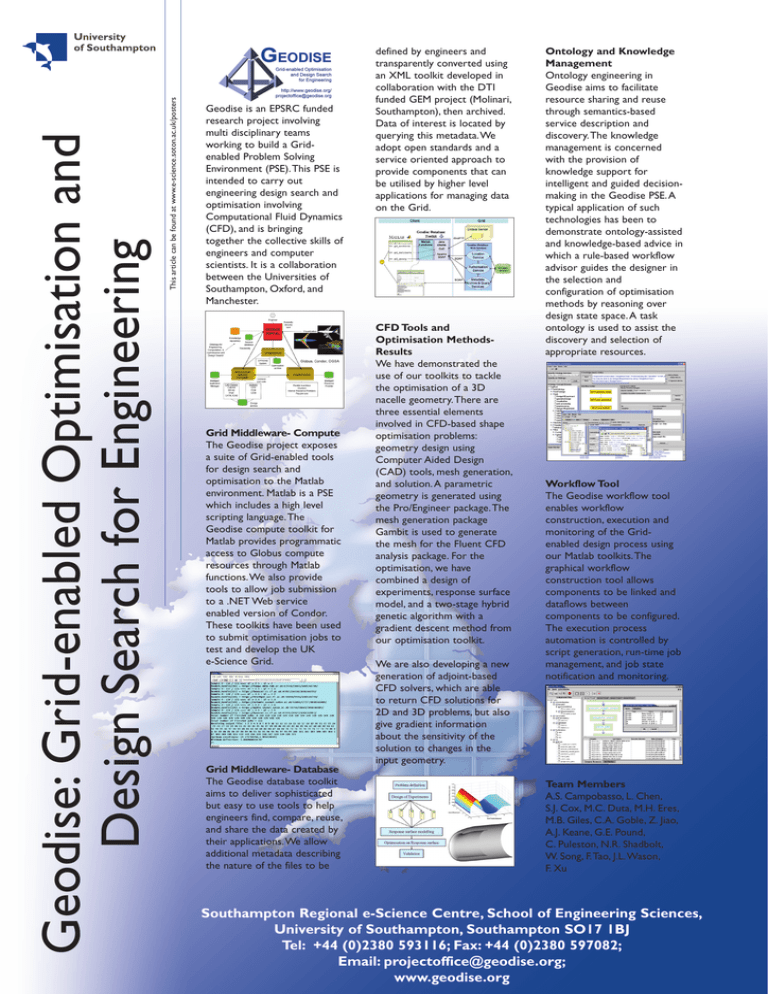
This article can be found at www.e-science.soton.ac.uk/posters Geodise: Grid-enabled Optimisation and Design Search for Engineering Geodise is an EPSRC funded research project involving multi disciplinary teams working to build a Gridenabled Problem Solving Environment (PSE).This PSE is intended to carry out engineering design search and optimisation involving Computational Fluid Dynamics (CFD), and is bringing together the collective skills of engineers and computer scientists. It is a collaboration between the Universities of Southampton, Oxford, and Manchester. Grid Middleware- Compute The Geodise project exposes a suite of Grid-enabled tools for design search and optimisation to the Matlab environment. Matlab is a PSE which includes a high level scripting language.The Geodise compute toolkit for Matlab provides programmatic access to Globus compute resources through Matlab functions.We also provide tools to allow job submission to a .NET Web service enabled version of Condor. These toolkits have been used to submit optimisation jobs to test and develop the UK e-Science Grid. Grid Middleware- Database The Geodise database toolkit aims to deliver sophisticated but easy to use tools to help engineers find, compare, reuse, and share the data created by their applications.We allow additional metadata describing the nature of the files to be defined by engineers and transparently converted using an XML toolkit developed in collaboration with the DTI funded GEM project (Molinari, Southampton), then archived. Data of interest is located by querying this metadata.We adopt open standards and a service oriented approach to provide components that can be utilised by higher level applications for managing data on the Grid. CFD Tools and Optimisation MethodsResults We have demonstrated the use of our toolkits to tackle the optimisation of a 3D nacelle geometry.There are three essential elements involved in CFD-based shape optimisation problems: geometry design using Computer Aided Design (CAD) tools, mesh generation, and solution. A parametric geometry is generated using the Pro/Engineer package.The mesh generation package Gambit is used to generate the mesh for the Fluent CFD analysis package. For the optimisation, we have combined a design of experiments, response surface model, and a two-stage hybrid genetic algorithm with a gradient descent method from our optimisation toolkit. We are also developing a new generation of adjoint-based CFD solvers, which are able to return CFD solutions for 2D and 3D problems, but also give gradient information about the sensitivity of the solution to changes in the input geometry. Ontology and Knowledge Management Ontology engineering in Geodise aims to facilitate resource sharing and reuse through semantics-based service description and discovery.The knowledge management is concerned with the provision of knowledge support for intelligent and guided decisionmaking in the Geodise PSE. A typical application of such technologies has been to demonstrate ontology-assisted and knowledge-based advice in which a rule-based workflow advisor guides the designer in the selection and configuration of optimisation methods by reasoning over design state space. A task ontology is used to assist the discovery and selection of appropriate resources. Workflow Tool The Geodise workflow tool enables workflow construction, execution and monitoring of the Gridenabled design process using our Matlab toolkits.The graphical workflow construction tool allows components to be linked and dataflows between components to be configured. The execution process automation is controlled by script generation, run-time job management, and job state notification and monitoring. Team Members A.S. Campobasso, L. Chen, S.J. Cox, M.C. Duta, M.H. Eres, M.B. Giles, C.A. Goble, Z. Jiao, A.J. Keane, G.E. Pound, C. Puleston, N.R. Shadbolt, W. Song, F.Tao, J.L.Wason, F. Xu Southampton Regional e-Science Centre, School of Engineering Sciences, University of Southampton, Southampton SO17 1BJ Tel: +44 (0)2380 593116; Fax: +44 (0)2380 597082; Email: projectoffice@geodise.org; www.geodise.org
